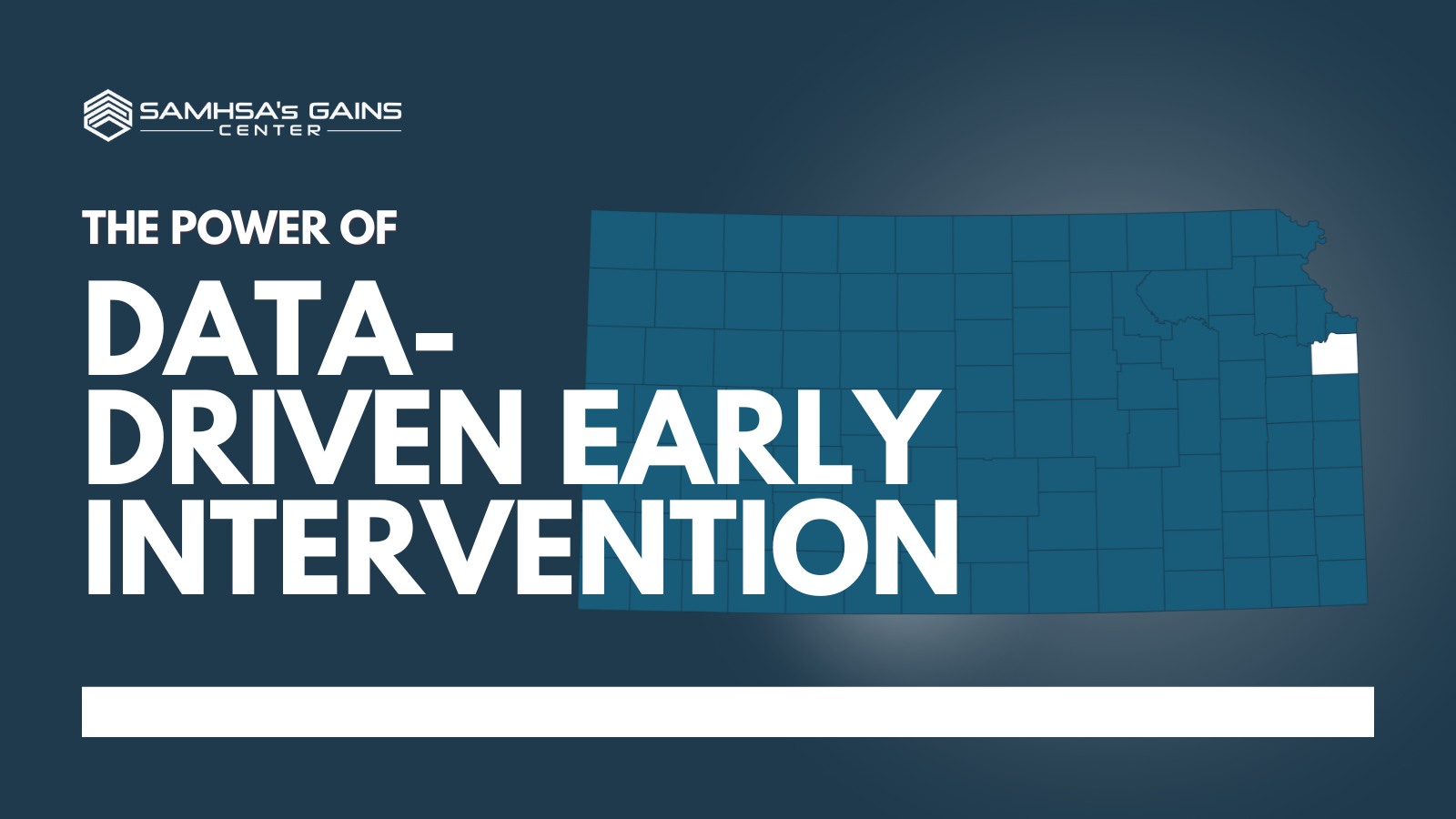Johnson County, Kansas, has a long history of collecting criminal justice data, beginning with the adoption of the Justice Information Management System (JIMS) in 1993, which tracks an individual’s movement through the booking and court process in a single database. Then in 2008, the creation of My Resource Connection (MyRC) integrated JIMS data with information from numerous other agencies (see MyRC Data Providers). The linking of these databases has served as a catalyst for multiple initiatives that have enhanced services for people with mental health conditions and substance use disorders in contact with the adult criminal justice system.
“Once we started sharing data through a centralized repository, many opportunities followed,” observed Chris Schneweis, senior business intelligence analyst at the Johnson County Department of Corrections. “For example, we were well poised to participate in a Data Science for Social Good fellowship, through which we harnessed the power of machine learning techniques, leveraged data, and predictive analytics to generate an early intervention system.”
Using data from jails, police departments, the Department of Corrections, public health, emergency medical services, and mental health services, the county prioritizes individuals at high risk for going to jail within a year, with the goal of diverting them to mental health services. Once identified, the individuals are approached, through a phone call or home visit, by mental health professionals with Johnson County’s Mobile Crisis Response Team (MCRT), who offer support and referral to community providers.
Outreach and referrals are also provided to individuals whose responses to the Brief Jail Mental Health Screen (BJMHS) indicate symptoms of a serious mental illness. Routinely administered as part of Johnson County’s booking process since 2016, this screening and subsequent outreach have proven to reduce recidivism and increase participation in relevant mental health support services. A study of people who received outreach indicated a 23 percent decrease in recidivism.
MyRC Data Providers
- JIMS
- Johnson County Departments
- Aging and Human Services
- Corrections
- Developmental Supports
- Emergency Medical Services
- Health and Environment
- Mental Health
- Kansas Department of Corrections
- 17 law enforcement agencies
Notably, of people who scored positive on BJMHS, 37.5 percent had a previous jail booking; among those who scored negative, 36 percent had a previous booking. “These findings suggest that someone with a mental health condition is no more likely to be booked into jail than someone who does not, which is our goal,” says Mike Brouwer, criminal justice coordinator of the Johnson County Manager’s Office. “This progress is exciting, and when you improve practices for specific populations, all populations tend to benefit. Success prompts more innovation; we’re always asking, ‘What else can we do?’”
Johnson County is now piloting its predictive analysis-outreach model to identify individuals likely to be at risk for overdose or suicide. MCRT will provide outreach to those individuals, as well as to 988 calls that do not require a law enforcement response. Between 2017 and 2022, crisis calls more than doubled, which is partially explained by Johnson County’s communication to the public through social media about the resources made available through its innovative efforts.
Johnson County’s diligent bringing together of data and people has resulted in other significant outcomes, such as the following:
- The Mental Health Co-Responder Program is now operational in the entire county. This program pairs a mental health clinician with a law enforcement officer for calls that involve an individual who may be experiencing a behavioral health issue.
- The county’s largest city, Overland Park, has not only co-responder staffing for 24/7 availability but also the Overland Park Crisis Action Team of specially trained officers.
- The Adult Behavioral Health Court and Adult Drug Court offer opportunities to divert individuals from incarceration to treatment.
- Since 2021, medication-assisted treatment has been provided to individuals in jail custody who have a substance use disorder.
- The Adult Residential Center has made available an entire floor of problem-solving beds to individuals who are exiting jail or have interacted with co-responders. Lodging, meals, transportation to work, and supportive services are provided free of charge for up to 60 days.
Looking back on how far Johnson County has come and where it is now, Schneweis reflects, “Being able to identify people in need of services before, not after, they end up in jail or in the emergency department is a much more proactive use of data-sharing than we used in the past. It’s a new day and age for Johnson County in terms of what we’re doing with the data we have.”
Additional Reading:
- Mental Health and Criminal Justice Case Study: Johnson County, Kan.
- Reducing Incarceration through Prioritized Interventions
For more information, contact the Johnson County criminal justice coordinator.
Like what you’ve read? Sign up to receive the monthly GAINS eNews!


